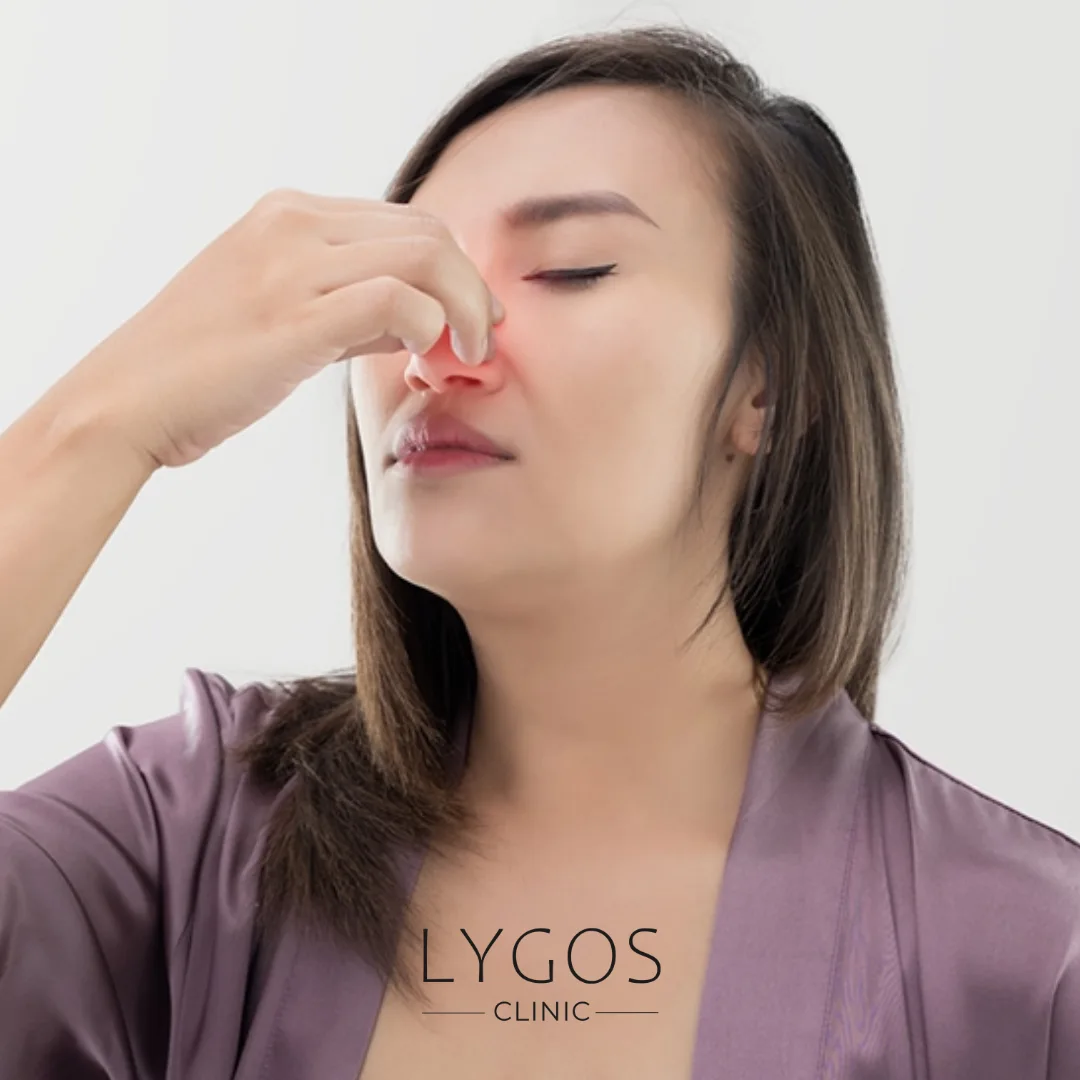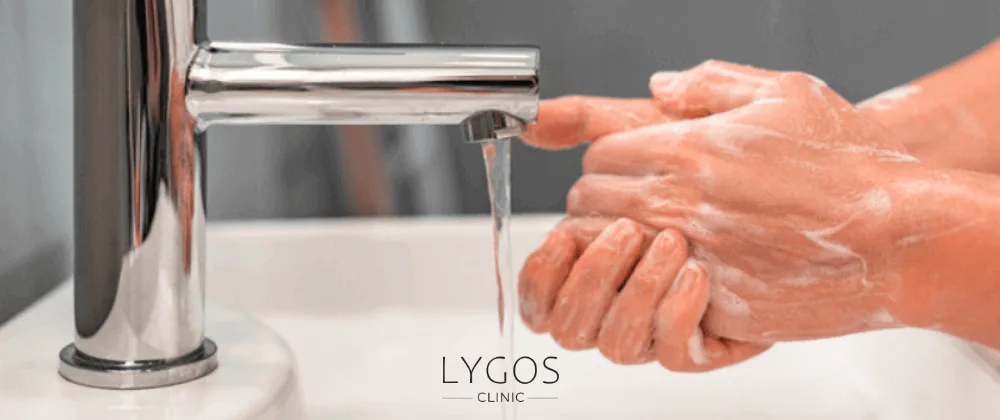What Are the Symptoms of Infection After Nose Surgery?

Chose Your Topic
What Are the Symptoms of Infection After Nose Surgery?
Nose aesthetics or functional nose surgeries have become quite common in recent years. However, as with any surgical procedure, symptoms of infection after nose surgery can also occur. In this article, we will discuss the symptoms of infection after nose surgery, the factors that increase the risk of infection, how to prevent it, and treatment methods.

What Is an Infection After Nose Surgery?
Symptoms of infection after nose surgery occur as a complication caused by the proliferation of bacterial or viral agents in the surgical area. These infections can range from mild redness and swelling to severe health problems. Early diagnosis and proper treatment of the infection are crucial for controlling it.
What Are the Symptoms of Infection After Nose Surgery?
Symptoms of infection after nose surgery include:
- Severe and persistent pain: Mild pain after surgery is normal, but pain that does not subside over time and instead worsens is among the symptoms of infection after nose surgery.
- Redness and swelling: Excessive redness and widespread swelling in the surgical area may indicate symptoms of infection after nose surgery.
- Fever: A body temperature rising above 38 degrees Celsius is one of the most common symptoms of infection after nose surgery.
- Inflamed discharge: The presence of yellow or green foul-smelling discharge from the nostrils is an important indicator of symptoms of infection after nose surgery.
- General fatigue: Patients experiencing symptoms of infection after nose surgery may feel tired, weak, and exhausted.
- Increased skin temperature: An excessively warm surgical area can be among the symptoms of infection after nose surgery.
- Nasal congestion and difficulty breathing: Persistent nasal congestion is also included among the symptoms of infection after nose surgery.
What Factors Increase the Risk of Infection?
Certain factors increase the risk of developing symptoms of infection after nose surgery, including:
- Failure to follow hygiene rules: Neglecting the cleanliness of the surgical area can increase the risk of symptoms of infection after nose surgery.
- Smoking and alcohol consumption: Smoking and alcohol weaken the immune system, which may lead to symptoms of infection after nose surgery.
- Diabetes and chronic diseases: Conditions that weaken the immune system can increase the risk of symptoms of infection after nose surgery.

How to Prevent Infection After Nose Surgery?
To prevent symptoms of infection after nose surgery, it is important to follow these steps:
- Follow your doctor's instructions: Strictly adhering to post-surgery care guidelines can prevent symptoms of infection after nose surgery.
- Wash your hands frequently: Washing hands before and after touching the surgical area reduces the risk of symptoms of infection after nose surgery.
How Is Infection After Nose Surgery Treated?
If symptoms of infection after nose surgery develop, the following treatment methods may be applied:
- Antibiotic treatment: Antibiotics prescribed by your doctor can help control symptoms of infection after nose surgery.
- Pain relievers: Painkillers recommended by the doctor can help reduce symptoms of infection after nose surgery.

When Should You See a Doctor?
If symptoms of infection after nose surgery are noticed, a doctor should be consulted without delay. You should seek medical attention immediately if:
- Fever exceeds 38 degrees Celsius and does not go down,
- Severe and persistent pain occurs,
- Foul-smelling, yellow, or green discharge is present,
- Excessive swelling and redness in the nasal area develop,
- Serious difficulty in breathing is experienced.
Symptoms of infection after nose surgery can be prevented and treated with proper care and early intervention. Following hygiene rules after surgery and complying with your doctor’s recommendations can help minimize the risk of symptoms of infection after nose surgery. If you notice any symptoms of infection after nose surgery, seeking medical attention immediately is the most important step to protect your health.
Infection After Nose Surgery Frequently Asked Questions (FAQ)
Symptoms of infection after nose surgery may include persistent pain, excessive redness and swelling in the surgical area, fever, foul-smelling discharge from the nostrils, general fatigue, increased skin temperature, and nasal congestion or difficulty breathing.
To reduce the risk of infection, follow your doctor's post-surgery instructions carefully, maintain good hygiene by washing your hands frequently, and avoid smoking and alcohol consumption, as these can weaken your immune system.
Factors that increase the risk of infection include failure to follow hygiene guidelines, smoking, alcohol consumption, and having chronic conditions such as diabetes that weaken the immune system.
If you notice any symptoms such as persistent pain, fever above 38°C, foul-smelling discharge, excessive swelling, or difficulty breathing, contact your doctor immediately for evaluation and treatment.
Treatment for an infection after nose surgery may involve antibiotics prescribed by your doctor to control the infection, along with pain relievers to alleviate discomfort.
Seek medical attention immediately if you experience severe pain, fever that doesn't subside, yellow or green discharge, excessive swelling or redness, or difficulty breathing. Early intervention is essential to prevent complications.


